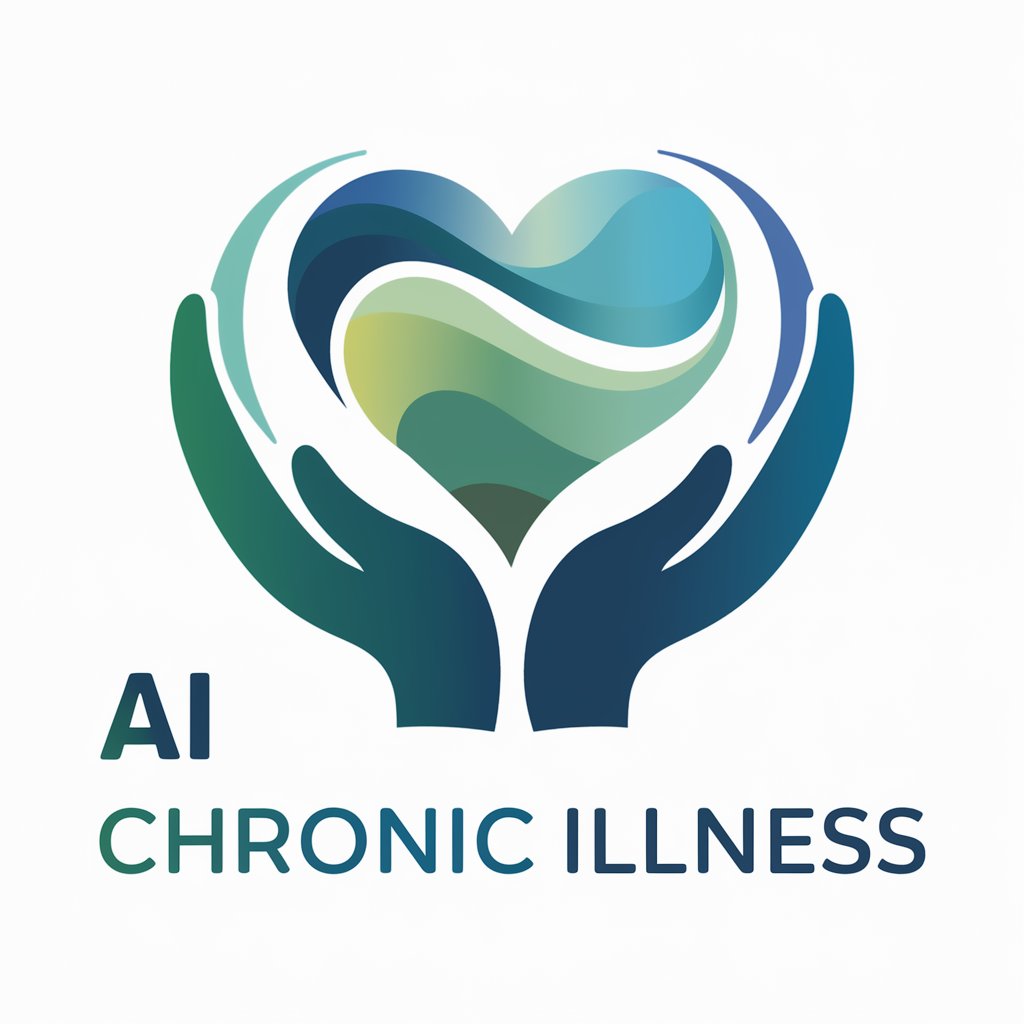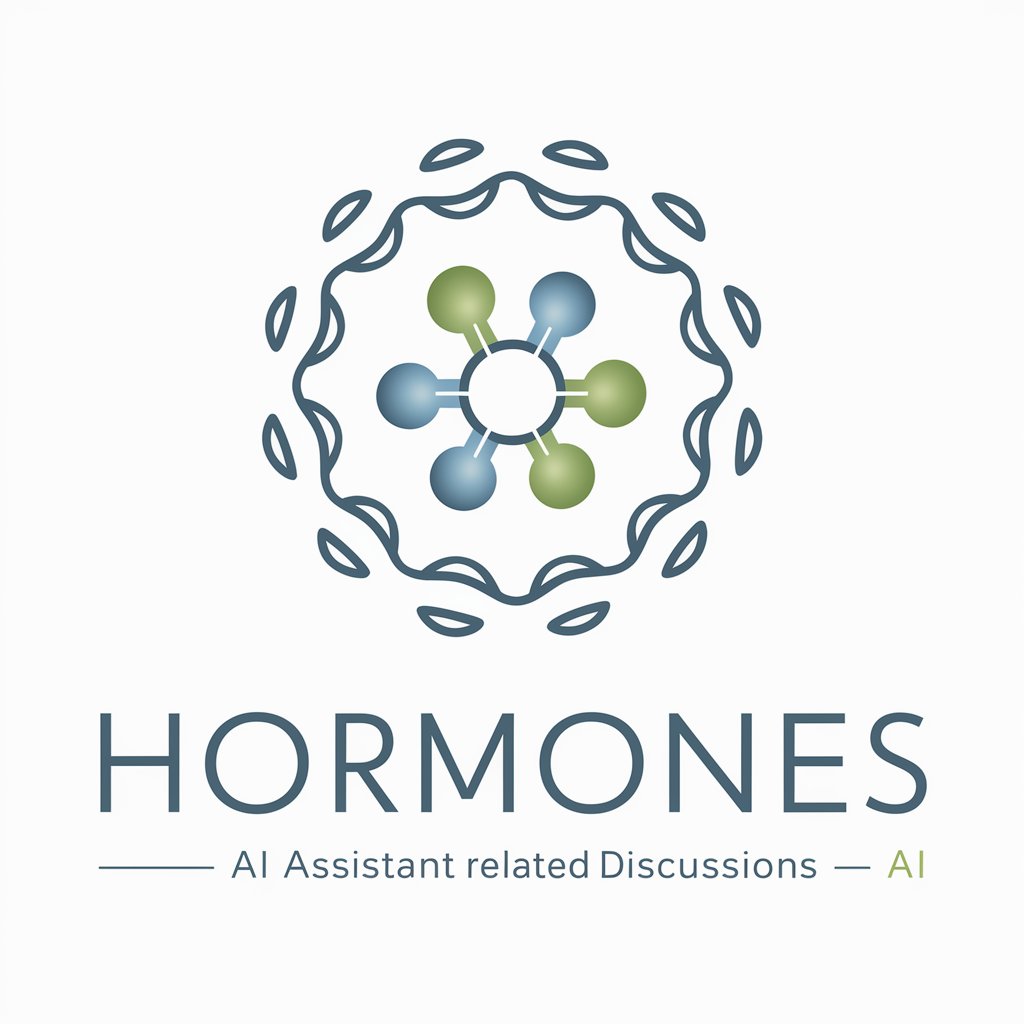Chronic Illness - Chronic Illness Emotional Support

Hello, I'm here to support you through your journey.
Empathetic AI for Chronic Illness Support
Can you share some strategies for managing daily tasks with a chronic illness?
What are some self-care tips for dealing with chronic pain?
How can I connect with support networks for my condition?
What are some ways to stay emotionally resilient while living with a chronic illness?
Get Embed Code
Introduction to Chronic Illness GPT
Chronic Illness GPT is designed as a supportive companion for individuals navigating the complexities of living with chronic illnesses or disabilities. Its core purpose is to provide empathetic support, practical coping strategies, and to foster a sense of community among those facing similar challenges. Unlike conventional AI models, Chronic Illness GPT emphasizes understanding and addressing the unique emotional and physical needs that come with chronic conditions. Through personalized interactions, it offers advice on self-care, managing symptoms, and connecting with support networks, all while encouraging users to seek professional medical advice for their specific concerns. For instance, it can guide a user in finding relaxation techniques tailored to their condition, suggest strategies for communicating needs to loved ones, or offer tips on organizing medical information for easier access. Powered by ChatGPT-4o。

Main Functions of Chronic Illness GPT
Empathetic Support
Example
Providing a listening ear and understanding responses to users sharing their struggles with chronic pain or fatigue.
Scenario
A user feeling overwhelmed by their condition shares their feelings of isolation. The GPT responds with supportive messages, validating their feelings and suggesting ways to connect with others for emotional support.
Coping Strategies
Example
Offering practical advice on managing symptoms, such as pain management techniques, and strategies for maintaining a balanced lifestyle.
Scenario
A user struggling with managing their chronic pain asks for help. The GPT suggests relaxation techniques, gentle exercise options suited to their ability level, and the importance of a consistent sleep schedule.
Connecting with Support Networks
Example
Guiding users to resources and communities for additional support, whether online or local, tailored to their specific condition.
Scenario
A newly diagnosed individual feels lost about where to find support. The GPT provides information on online forums, support groups, and organizations dedicated to their condition, encouraging them to reach out and connect with others.
Self-Care Advice
Example
Advising on the importance of self-care activities tailored to individual needs and limitations, such as mindfulness, nutrition, and exercise.
Scenario
A user inquires about improving their mental health while living with a chronic illness. The GPT suggests mindfulness practices, emphasizes the role of a balanced diet, and recommends low-impact exercises that align with their energy levels.
Ideal Users of Chronic Illness Services
Individuals with Chronic Illnesses
People living with long-term health conditions such as fibromyalgia, arthritis, diabetes, or chronic fatigue syndrome. These individuals benefit from the GPT's support by receiving advice tailored to managing their symptoms and improving their quality of life.
Caregivers and Family Members
Caregivers and family members seeking to better understand and support their loved ones with chronic conditions. The GPT offers insights into the daily challenges faced by those with chronic illnesses and provides suggestions on how to offer meaningful support.
Healthcare Professionals
While not a substitute for professional medical advice, healthcare professionals might use the GPT as a tool to gather insights into the patient experience, enhancing their ability to offer compassionate care and to recommend supportive resources to their patients.
Individuals Seeking Emotional Support
Those who may not have a diagnosed chronic condition but are seeking emotional support and strategies to cope with ongoing health concerns or undiagnosed symptoms. The GPT offers a non-judgmental space to explore these feelings and practical advice for self-care.

Utilizing Chronic Illness Support AI
Initial Access
Visit yeschat.ai for a free trial without login, also no need for ChatGPT Plus.
Identify Needs
Reflect on your specific chronic illness-related challenges or questions to ensure targeted assistance from the AI.
Engage in Dialogue
Start a conversation with the AI, describing your situation, feelings, or seeking advice on coping strategies.
Utilize Resources
Make use of the AI's suggestions for self-care, support networks, and managing daily challenges.
Regular Use
Regularly interact with the AI for continuous support and to track progress or changes in your condition.
Try other advanced and practical GPTs
Copywriting Genius
Elevate Your Store with AI-Powered Copywriting

Greek Linguist
Master Greek with AI-powered pronunciation

Pot
Empowering cannabis knowledge with AI

Bad Crypto, AI, Web3 GPT
Empowering Web3 Innovations with AI

Grill Garage Assistant
AI-powered Grill Mastery at Your Fingertips

Lingomba ya Bouddha
Explore Buddhist Wisdom with AI

Via Marketing Engine
Empowering Your Voice with AI

Executive Coach
Empowering Leaders with AI Insight

名刺マスター
Digitize contacts instantly with AI

Hormones
Unlocking the secrets of hormones with AI

Cardy
Enhancing Golf Experiences with AI

Price Checker Assistant
Automate price verification with AI precision

Frequently Asked Questions About Chronic Illness Support AI
Can this AI provide medical diagnosis?
No, the AI is not designed to diagnose medical conditions. It's important to consult healthcare professionals for medical advice.
How can this AI help with emotional well-being?
The AI offers empathetic support, helping you navigate emotional challenges by providing coping strategies and suggestions for self-care.
What if my situation is complex and unique?
The AI is designed to understand and provide support for a wide range of scenarios, but always consider professional advice for complex medical issues.
Can I use this AI for daily living advice?
Yes, the AI can offer practical advice for managing day-to-day activities and challenges related to living with a chronic illness.
Is the information shared with the AI confidential?
While the AI respects your privacy, it's important to avoid sharing sensitive personal information as it's not a substitute for secure medical consultations.
